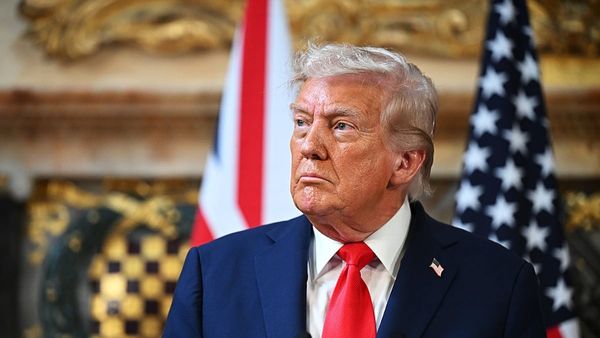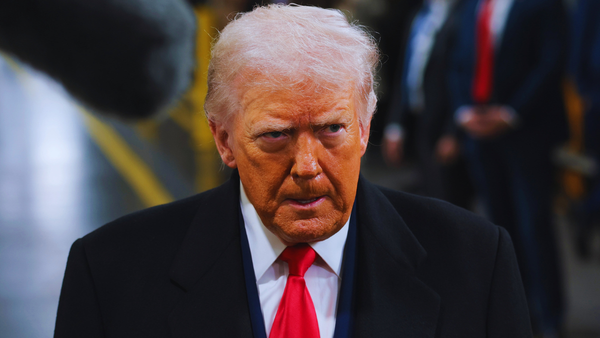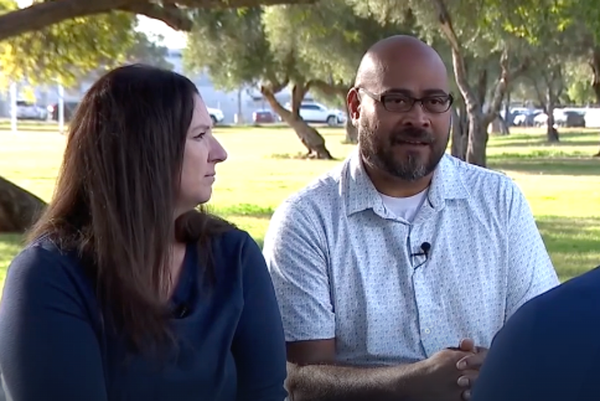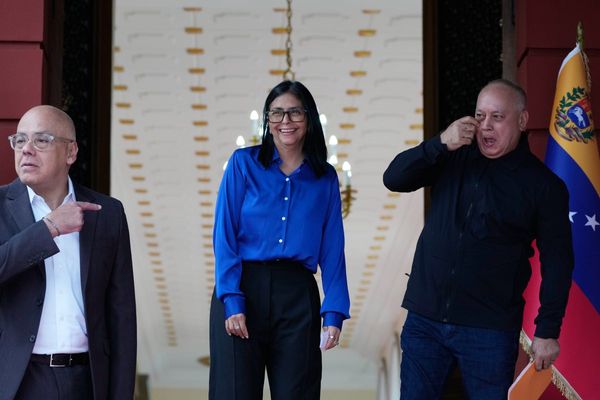
The UK has signed a £3.4bn agreement to cede sovereignty over the Chagos Islands to Mauritius after an 11th-hour legal challenge failed.
Keir Starmer told a press conference on Thursday afternoon he had signed the deal and that it was “one of the most significant contributions that we make to our security relationship with the United States”.
Under the agreement, Britain cedes control over the islands to Mauritius but leases the largest one, Diego Garcia, for 99 years to continue operating a joint US-UK military base there.
The cost of leasing Diego Garcia, revealed for the first time on Thursday, is £101m a year. Ministers said the total cost of the deal would be £3.4bn, on the basis that the value of the payments would decrease with inflation.
Speaking from the UK’s military headquarters, Starmer said there was “no alternative” to this agreement and defended its cost, saying it was “part and parcel of using Britain’s reach to keep us safe at home”. He said it was less than the cost of running one aircraft carrier for a year.
Downing Street said the deal was a “legal necessity” and backed by the US, Canada, Australia and New Zealand, which are part of an intelligence-sharing partnership with the UK. In 2021 a UN court gave an advisory opinion that the UK did not have rightful sovereignty over the Chagos archipelago.
Some inside government and the Labour party had privately attacked the agreement by asking why the UK was spending billions on it amid cost pressures.
No 10 is said to have been concerned about the backlash to finalising the deal amid widespread consternation over cuts to winter fuel payments and disability benefits. MPs and campaigners have said those cuts contributed to Labour’s heavy losses in the local elections in England this month.
There have also been fears that the base will become vulnerable to interference from hostile states such as China, which has good relations with Mauritius. In response the government said there was “robust provisions” to keep adversaries out, including a 24-nautical mile buffer zone where nothing can be built without UK consent.
Starmer said that by attacking the deal, the Reform UK leader, Nigel Farage, and the Conservative leader, Kemi Badenoch, were “in that column alongside Russia, China and Iran, rather than the column that has the UK and its allies in it”.
Priti Patel, the shadow foreign secretary, accused Starmer of having “slandered the Chagossian community” by lumping opponents of the deal with hostile states. “He has resorted to baseless and disgusting slurs – whilst he himself hands control of Chagos to a country that is actually cosying up with Russia and China,” she said.
The Chagossians do not speak with one voice on the future of the islands. Some have expressed support for the deal to hand sovereignty over them to Mauritius, while others are staunchly against it.
Peter Lamb, the Labour MP for Crawley, West Sussex, which is home to about 4,000 Chagossians, criticised the deal in the Commons. He said it did not secure their right to return to their homeland and asked “what should I tell my Chagossian constituents, when they ask the moral basis upon which the UK is ignoring their right to self-determination while we fight for it in Ukraine for Ukrainians?”
John Healey, the defence secretary, said the UK would finance a £40m trust fund for Mauritius to support the Chagossian people.
Plans to complete the agreement were almost scuppered by a legal challenge in the early hours of Thursday. The prime minister had been due to attend a virtual event with the Mauritian government when a high court judge granted an injunction brought against the Foreign Office by a British Chagossian at 2.25am on Thursday.
Overnight Mr Justice Goose granted “interim relief” to Bertrice Pompe, who was born on Diego Garcia and had previously taken legal action against the agreement.
But hours later Mr Justice Chamberlain discharged the injunction, ruling that “the public interest and the interests of the United Kingdom would be substantially prejudiced by the grant or continuance of interim relief”.
The court was told by Harriet Mathews, the Foreign Office’s director general for Africa, the Americas and Overseas Territories, that the delay had “caused harm to the UK’s reputation”.
Speaking outside the Royal Courts of Justice in London after the injunction was discharged, Pompe said it was “a very, very sad day … We are British citizens, yet our right doesn’t count. We don’t want to give our rights to Mauritius, we are not Mauritians.”
Starmer said the last-minute legal challenge had been “a good thing” because it had forced a court to come down conclusively on the government’s side.
No 10 said last month that Donald Trump had signed off the deal after a meeting with Starmer in the White House in February where the US president said he had “a feeling it’s going to work out very well”.
The news of the government’s intention to green-light the deal came a day after Starmer announced a U-turn on the winter fuel allowance. He told the Commons on Wednesday that he wanted to “ensure that as we go forward, more pensioners are eligible for winter fuel payments”. The Guardian revealed earlier this month that Downing Street was rethinking the policy.
Before February, there had been concerns in government that Trump would block the Chagos Islands agreement after a backlash from some senior US Republicans.
Senior figures in the Trump administration including Marco Rubio, the secretary of state, had criticised the proposals last year because of Mauritius’s relationship with China. Farage, the Reform UK leader, repeatedly claimed that Trump would reject the proposal once he turned his attention to it, but this did not materialise.







